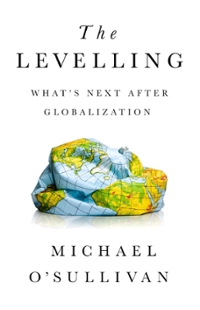Please help me with this question
2. Trade Dispute You are a research associate covering the solar panel industry for Goldman Sachs. The countries of Transylvania and Oceania are having a trade dispute. Upset with behavior of Transylvanian firms, the government of Oceania is threatening to close its market to Transylvanian firms. You are asked to write a research report on the implications of this scenario. Some information about the solar panel industry in the Oceania and Transylvania: . Firms in both countries share the same technological characteristics. Consultants from Accen- ture report that the fixed cost associated with producing a solar panel are $50,000, the variable costs associated with producing a solar panel are $25. The demand elasticity parameter "b' was estimated to be 1/50. . Your analyst reports industry characteristics of the Oceania and Transylvania market: Currently there are 10 firms in the combined market. Three of these firms are located in Oceania. The other seven firms are from Transylvania. . Total solar panel demand (and units sold) in the combined market is 100,000 units. Out of the total, 25,000 units were sold in Oceania and 75,000 units were sold in Transylvania. a. In a preliminary draft of the report, your research analysts writes, "our team at Goldman ex- pects, in long-run, that the Oceania market (when closed to foreign competition) to be entirely comprised of the current three firms located in Oceania" . Is this correct? Why or why not? b. Depending on your answer to (a), explain to your research analyst how and why (i.e. specifically, how and why prices change, average costs change, firms exit or enter) the Oceania market will evolve if it closes to foreign competition. c. A colleague argues that closing the Oceania market to foreign competition is good for the firms currently operating in Oceania- in the long run- because it will "return pricing power" to firms and, hence, each individual firm's revenues (price times quantity sold) will increase relative to the current situation (i.e. the combined market). Is your colleague correct? Please explain why or why not. d. Your managing director suggests that you speculate on the following issue: if firms differ in their efficiency, how will average industry productivity change (if at all) in the Oceania market as it closes to foreign competition. Please do so below







